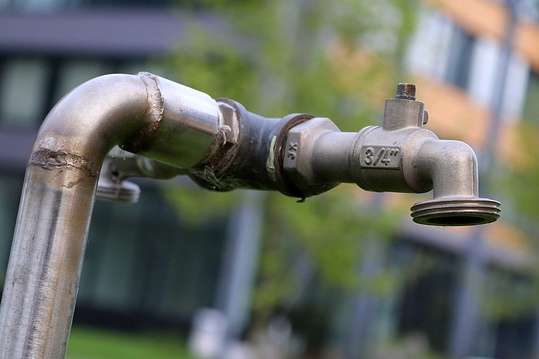Contact: Mary Ann Manahan, +639063983206, (+63.2)355.2758, [email protected]
Quezon City, 1 October 2014— A year after what could have been an unprecedented decision by the Regulatory Office of the government agency Metro Manila Waterworks and Sewerage System (MWSS-RO) to roll back water rates in September 2013, the people still await the ruling’s implementation.
The average basic charge of Manila Water should have gone down by P1.45 per cubic meter (cu.m.). Maynilad’s should have decreased by P1.29. Their current rates are P24.57 and P30.28 per cu.m., respectively. Based on the decision, Manila Water customers using 30 cu.m. of water and paying P605.10 per month should only pay P552.04 beginning October 2013. Maynilad customers consuming the same volume, on the other hand, should only pay P691.76, down from P739.79. Manila Water’s rate will go down by a total of 29.47% or P7.24 over the next five years, while Maynilad’s will fall by 4.82% or P1.46.
This decision is already a big step toward upholding the interests of the public, but the more critical action is its implementation, which is being held back by the ongoing arbitration of the case between government on one side and Manila Water and Maynilad on the other.
The two big water concessionaires sought an international arbitration with the government as provided under the Concession Agreement as they refused to uphold the decision of MWSS-RO to disallow the previous rate increases which the two corporations implemented to cover their capital and operating expenditures and assure them of guaranteed returns. A sticky issue in the arbitration is whether or not the firms should be allowed to pass on their income taxes to consumers.
Focus on the Global South believes that the two concessionaires should not be allowed to pass on their income taxes to consumers. We also call for transparency in the ongoing arbitration process as it is not only corporate interests, but more so the public’s, that is at stake here. Too, it is taxpayers’ money being used to finance the arbitration. Previous arbitration expenses with both Maynilad and Manila Water, on three separate occasions, have cost the Filipino taxpayers more than Php 140 million!
That corporations can refuse government regulation shows the bias against public interest of the Concession Agreement. It is also an indication of how the policy of privatization even of public services has further emasculated the regulatory role of government, especially its ability to protect the public interest.
That private sector is always more efficient is also a neoliberal line that has long been sold and rejected. Despite claims that Maynilad and Manila Water have reached almost 100% coverage, according to the MWSS-RO, there are still more than 204,000 families, mostly belonging to informal and urban poor settlements in the Metro Manila that do not enjoy access to safe and clean water, as of the end of 2012. Many poor households are still without individual connections. Further, water quality is also questionable in these communities, and reportedly about 1.54 billion liters of water is still wasted daily by Manila Water and Maynilad areas, resulting in huge amounts of non-revenue water.
Finally, Focus on the Global South joins other voices in civil society in demanding government to recast the privatization contract. We might as well learn from what’s happening in Jakarta right now, where the government plans to remunicipalize the city’s water system or take water back from the private sector and put it into public hands after 15 years of failed service provision. Similarly, the Metro Manila privatization as a model scheme should be exposed as a pathetic failure. It perfectly serves private investors interested in government assets, but as far as consumer protection and regulatory issues are concerned, it is an outright failure.










